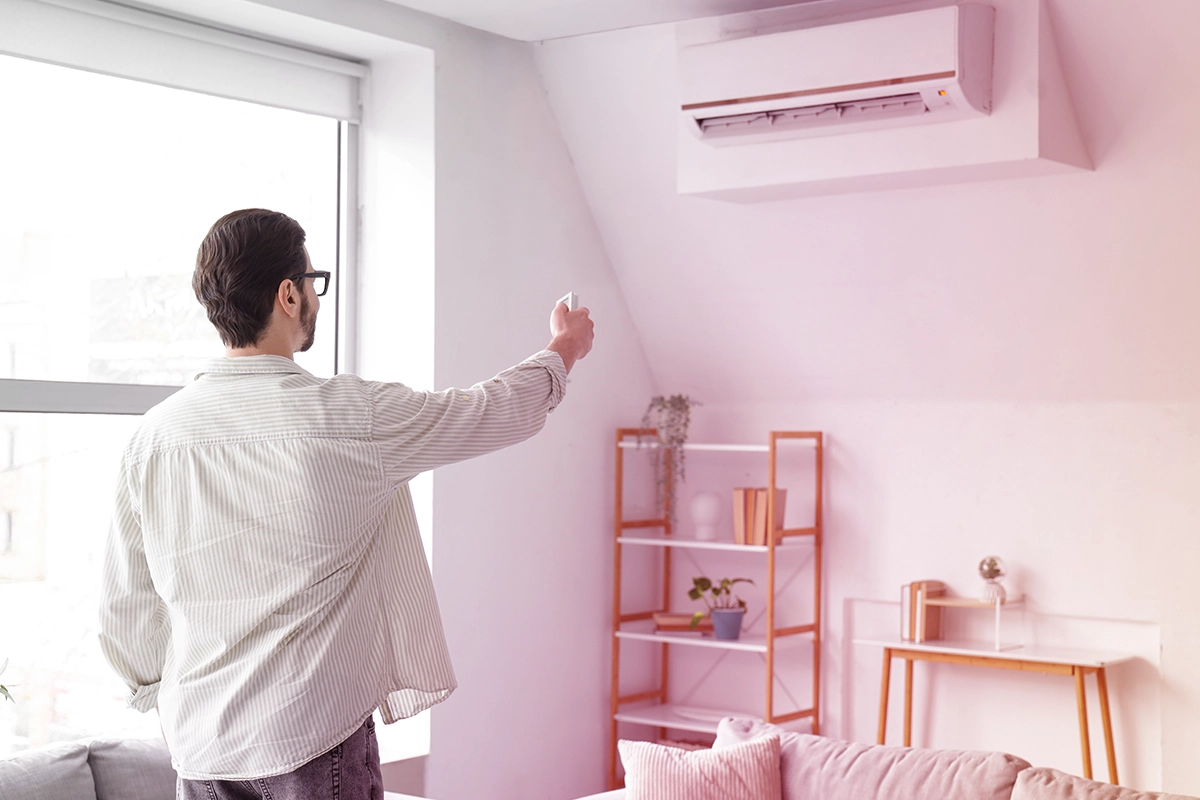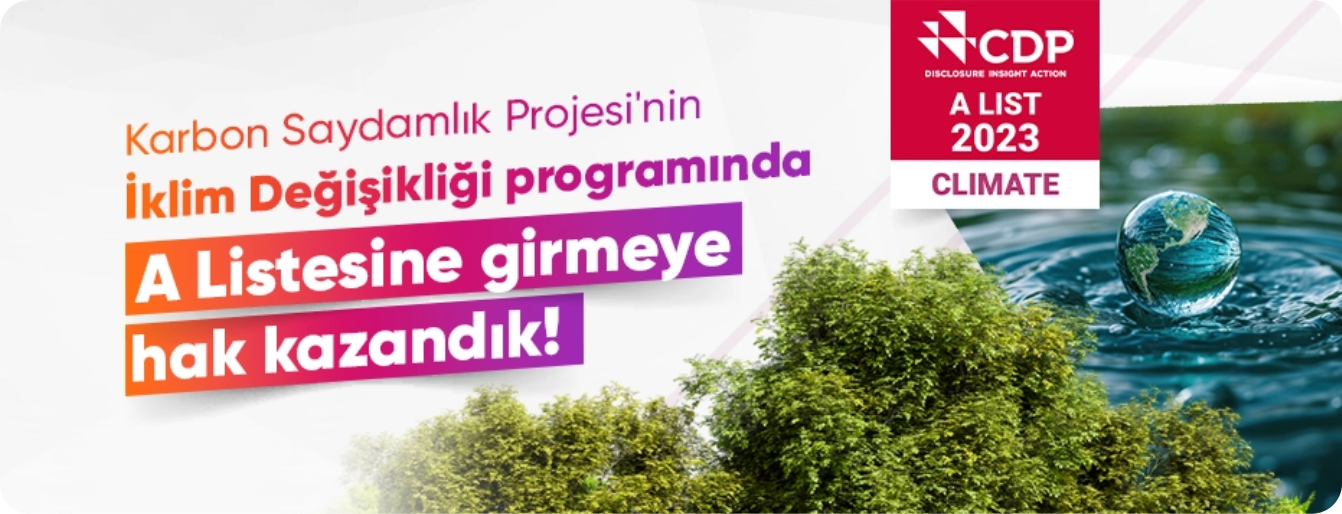
What is Air Conditioning? How Do Air Conditioners Work?
What is in this article?
Air conditioners, which keep us cool on hot summer days, not only improve our comfort but also affect our energy consumption. It is essential to develop the right usage practices both to ensure efficient operation of the air conditioner and to save energy. Knowing how air conditioning works, making the right decision about choosing the right device and being able to deal with common problems saves not only comfort, but also your budget.
Thanks to this guide you can discover how to optimize the performance of your air conditioner, ways to improve energy efficiency and solutions to common problems.
What is an Air Conditioner?
Air conditioners are devices designed to cool indoor spaces. These devices take the indoor heat and transfer it to the outside, lowering the ambient temperature. A refrigerant is used for their operation. The cold refrigerant absorbs heat from the interior and transforms into a gaseous state. Then, this gas is heated in a compressor and routed to the outdoor unit. The outdoor unit cools the gas back to the fluid state and the cycle starts again.
Air conditioners are widely known as “split-system”. This system consists of an indoor unit (evaporator) and an outdoor unit (condenser). While the indoor unit performs cooling and dehumidification, the outdoor unit exhausts the heat. Alternatively, “bundled” systems combine all components in a single outdoor unit and are suitable for large spaces. Air conditioners offer comfort in hot weather, making your living spaces cozy.
Different Types of Air Conditioners and Operation Methods: Which one is the Best for You?
To choose the right air conditioner for you among air conditioners with different designs and operating principles, it is better to have a general overview of the models. The types of air conditioners are as follows:
Wall-Mounted Split Air Conditioner: As an ideal option to improve the comfort of your home, wall-mounted split air conditioners operate at low noise levels with both indoor and outdoor units. Copper pipes, power cables and drainage hoses are used to connect the indoor unit to the outdoor unit. These types of air conditioners shall be installed by specialists.
Concealed Floor- and Ceiling-Mounted Split Air Conditioner: Concealed floor- and ceiling-mounted air conditioners are used in areas with high occupancy capacities, such as hotel lobbies, restaurants and large meeting rooms. Concealed in a suspended ceiling, these air conditioners add an aesthetic touch and can be connected to the exterior for fresh air circulation.
Floor- and Ceiling-Mounted Split Air Conditioner: Floor- and ceiling-mounted split air conditioners are the perfect choice for those who seek aesthetics and functionality. As they can be installed both on the ceiling and on the floor, these air conditioners offer a practical use and a stylish look in spaces such as offices and shops.
Hall Type Split Air Conditioner: Many people wonder what a hall-type split air conditioner, which perfectly distributes air flow in large spaces, is. These models are particularly ideal for stores and meeting rooms. Thanks to their powerful fan systems, they effectively maintain cooling even in areas with high turnover of people.
Window Type Air Conditioners: Window-type air conditioners are the earliest air conditioner model which is shaped like a single box. Ideal for small, self-contained spaces, these air conditioners can be mounted on a window or wall. Dehumidification and remote control features make these air conditioners even more practical.
Mobile Air Conditioners: Providing flexibility thanks to their portability, mobile air conditioners do not require any outdoor unit. By means of a hose, they can be ventilated to the external space through the window and can be used in different rooms.
Hygienic Air Conditioners: Preferred in places where special cleaning standards are required, hygienic air conditioners provide high hygiene and clean air in areas such as operating rooms, laboratories and the food industry. These air conditioners ensure that the environment remains sterile and comfortable.
Inverter Air Conditioner: Groundbreaking Technology in Energy Efficiency
For those who wonder what an inverter air conditioner is, it is an intelligent air conditioning system developed to provide comfort by improving energy efficiency. Unlike conventional air conditioners, the operating principle of an inverter air conditioner is to continuously adjust the speed of the compressor. This technology maintains the indoor temperature at the desired level by increasing or decreasing the speed of the compressor as required.
With standard air conditioners, the compressor stops and restarts when a certain temperature is reached. This increases the energy consumption. However, air conditioners with inverters save energy by operating the compressor continuously and varying its speed. This system provides a faster cooling or heating process and allows for more consistent temperature control.
Inverter air conditioners provide lower energy consumption, reduced electricity bills and environmentally friendly performance. This in turn makes them a modern and efficient option for air conditioning.
If you want to get detailed information about inverter systems, you can check our blog titled What is an inverter, and what does it do.
Operating Principles of Household Air Conditioners: Scientific Principles of Cooling and Heating at Home
Household air conditioners are usually installed in the form of split systems, commonly known as “central air conditioners”. These systems not only cool the interior space but also deliver additional functions such as humidity control, improvement of air quality and regulation of air flow. A typical domestic air conditioning system consists of several components and these components work together to provide optimal comfort.
For those who wonder “How does a domestic air conditioner work?”, here is the answer: The warm indoor air inside the house is blown through a cold cooling coil, where cooled air is generated. The cooling coil is equipped with a system with a refrigerant inside. First, the refrigerant is expanded and depressurized. Then, the refrigerant transforms from a liquid to a gaseous state as the heat of the air is absorbed by the refrigerant. During this process, the temperature of the indoor space is reduced and the cooled air is delivered back into the interior of the house.
10 Smart Tips to Keep in Mind When Using Air Conditioners
You can achieve greater energy efficiency by following some tips when using air conditioners. Here are a few points you can consider when using air conditioners:
● Prioritizing energy efficiency: You can choose “type A” air conditioners with higher levels of energy efficiency. These devices may cost more in the initial investment but can save money in the long run. You can also take a look at our content if you are wondering how to save electricity in other areas of your household.
● Selecting the ideal temperature setting: The air- conditioner shall not be set to very low temperatures when it is operated in the cooling mode. The highest comfortable temperature range (24-26°C) is the most efficient range. Each drop in temperature increases energy consumption by 10%. (1)
● Adjusting the blowing speed: Do not set the blowing speed of the air conditioner too high. Higher speeds may increase energy consumption and cause noise.
● Using the dehumidification mode: You can operate the air conditioner in dehumidification mode to improve comfort and stabilize energy consumption in humid weather.
● Blocking the sunlight: Particularly on hot days, you can close curtains, blinds or shutters to prevent the sun's heat from entering the house and save energy.
● Replacing old air conditioners: Air conditioners older than ten years need to be replaced. Older models consume 40% more energy and offer lower performance compared to new air conditioners.
● Controlling the air flow: Make sure that the air inlets and outlets of the indoor unit of the air conditioner are open and the air flow of the outdoor unit is free of blockages.
● Cleaning the filters: This is a step that those who wonder how to maintain an air conditioner shall not skip. The filters of the air conditioner shall be cleaned at regular intervals and periodic maintenance operations shall be carried out by authorized services.
● Using a timer: You can use the air conditioner's timer to prevent it from operating unnecessarily and ensure that it is cool when you get home.
● Choosing the right capacity: An air conditioner with the appropriate capacity shall be selected. Appliances with too large or too small capacities can affect energy consumption and reduce comfort.
Problems and Solutions for Air Conditioners: The 10 Most Common Problems and Solutions
You may encounter some problems while you are using the air conditioner. Let's make a list of the most common air conditioning problems and how to solve them:
● Closing the windows and doors: Leaving windows and exterior doors open can let warm air in and cause the air conditioner to operate excessively. Ensure that all windows and doors are kept closed for energy efficiency.
● Cleaning the air ducts: Contaminated or blocked air ducts affect the performance of the air conditioner. You should have the air ducts professionally cleaned if there is dust, dirt or mold in the air ducts.
● Checking the thermostat settings: First, make sure that the thermostat is in cooling mode. This simple inspection is often overlooked after the winter months.
● Cleaning the air filters: Soiled air filters reduce the performance of the air conditioner and increase energy consumption. Filters shall be replaced or cleaned every three months.
● Inspecting fuses and circuit breakers: Inspect the circuit breakers in the switchboard if the air conditioner fails to operate. Turn the circuit breakers off and on if required and try again.
● Keeping air vents open: Blocked air vents reduce the efficiency of the air conditioner and cause energy loss. Ensure that all vents are open.
● Inspection of the outdoor unit: Dirt, leaves and other deposits on the outdoor unit reduce the efficiency of the air conditioner. Clean the unit and remove any obstructions around it.
● Inspecting for low refrigerant level: Consider that the refrigerant level may be low if the air conditioner does not cool sufficiently. Seek the assistance of a technician in case of a missing refrigerant and check for leaks.
● Inspecting for water leaks: In case of water leakage from the air conditioner, the appliance shall be switched off immediately and the cause of the leaking water shall be investigated. A blocked drainage line can cause leakage of water.
● Seeking help from a qualified technician: If you cannot solve the problem with the steps above, you should call a professional. A licensed technician can safely troubleshoot the air conditioner.
You can read our content now to get information about electrical problems and their causes that you may frequently encounter at home, apart from the malfunctions of the air conditioner.
Please be sure to share your experiences and suggestions about your journey through the world of air conditioning in the comments section. Do you have questions? We are here for you, feel free to ask anything you are curious about!

 Online Services
Online Services Application Inquiry
Application Inquiry Pay Assurance Fee
Pay Assurance Fee Query Installation Number
Query Installation Number Compensation Fee Inquiry
Compensation Fee Inquiry Automatic Payment Order Inquiry
Automatic Payment Order Inquiry Partnership
Partnership


Leave a Comment